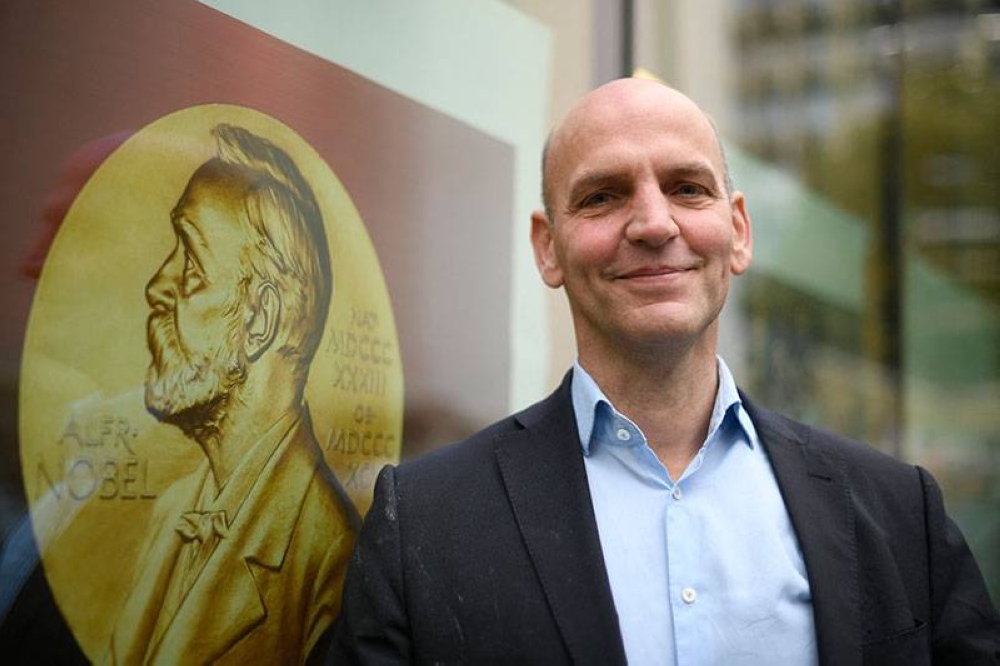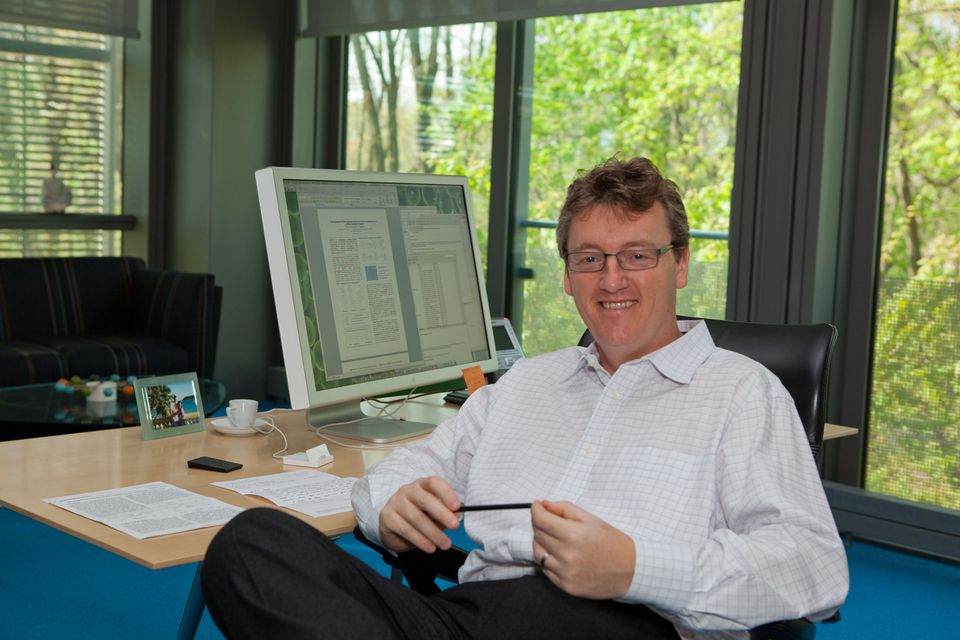Heads up—the Nobel Prize laureates for 2021 have been announced for the sciences of Physiology and Medicine, Chemistry, and Physics. Here are the distinguished individuals who have “conferred the greatest benefit to humankind,” as required for all laureates and according to the final will of its namesake and the Nobel Foundation founder, Swedish chemist and philanthropist Sir Alfred Nobel.
The Nobel Prize in Physiology or Medicine 2021
This year’s Nobel Prize in the fields of medicine for 2021 were awarded to two individuals, David Julius and Ardem Patapoutian, “for their discoveries of receptors for temperature and touch.”
David Julius is an American scientist who was born in New York back in 1955. He is currently a professor at the University of California, San Francisco; He got his Ph.D. from the University of California, Berkeley and was a postdoctoral fellow at Columbia University.
Ardem Patapoutian, on the other hand, was born in Beirut, Lebanon in 1967. He is currently a professor at Scripps Research in California; He got his Ph.D. from the California Institute of Technology at Pasadena, and was a postdoctoral fellow at the University of California, San Francisco.
Julius was awarded for his discovery of the gene called TRPV1 back in the 1990s, which coded for a protein that responds to heat at temperatures of over 43 °C (109 °F). Julius used capsaicin, the chemical responsible for making peppers spicy to the taste, and exposed cells to it to isolate the responding TRPV1. The discovery of TRPV1 led to the discovery of other genes with a similar function, including TRPM8, which instead responded to cold; in fact, TRPM8 was independently identified by both Julius and Patapoutian.
Patapoutian, on the other hand, was awarded for his discovery of two ion channels in the skin also back in the 1990s, named Piezo1 and Piezo2, which responded to touch. After identifying a group of cells which produced an electrical signal when interacted with by touch, Patapoutian and team took out genes in a sequence until it led them to one which, when removed, disabled the cell’s electrical response to touch. Later studies found that these channels played a vital role in other bodily processes, like blood pressure maintenance and bladder control.
The Nobel Prize in Chemistry 2021
This year’s Nobel Prize in Chemistry, on the other hand, was also awarded to two chemists, Benjamin List and David W.C. MacMillan, “for the development of asymmetric organocatalysis.”
List was born in Frankfurt, Germany in 1968, and received his Ph.D. from Goethe University in Frankfurt back in 1997. He is currently the director of the Max Planck Institute for Coal Research in Germany. MacMillan, born in Bellshill, the United Kingdom also in 1968, received his Ph.D. from the University of California, Irvine, back in 1996. He is currently a professor at Princeton University.
Catalysts themselves are nothing new; these are substances or chemicals that accelerate chemical reactions without participating in the reaction themselves. Science had known only two types of catalysts—metal- and enzyme-based—until the two independently discovered a third kind back in the year 2000.
Their then newly-discovered system, known as asymmetric organocatalysis, uses a “frame” or carbon (C) atoms with other chemical groups embedded in its structure, like oxygen (O) and phosphorus (P). The abundance of the chemical makeup of this new class of catalysts made them cheaper and more environmentally friendly compared to the other kinds. Additionally, these new catalysts can create a specific chirality for molecules they help generate, which can be either right-handed or left-handed, thus why they’re “asymmetric”; while other catalysts can do the same, they often create both at the same time with no preference between the two. These new catalysts have paved the way for improvements in both pharmaceutical applications and in solar cells, among others.
The Nobel Prize in Physics 2021
Finally, the Nobel Prize in Physics is awarded in two halves, and was given to laureates “for [their] groundbreaking contributions to our understanding of complex physical systems.” One half goes to the duo of physicists Syukuro Manabe and Klaus Hasselmann “for the physical modelling of Earth’s climate, quantifying variability and reliably predicting global warming.” The other half was awarded to Giorgio Parisi “for the discovery of the interplay of disorder and fluctuations in physical systems from atomic to planetary scales.”
Manabe, born in 1931 in Shingu, Japan, earned his Ph.D. at the University of Tokyo back in 1957. He currently serves as senior meteorologist at Princeton University. Hasselmann, on the other hand, was also born in 1931 in Hamburg, Germany. He received his Ph.D. in 1957 from the University of Göttingen, and is now currently a professor at the Max Planck Institute for Meteorology in Germany. Finally, Parisi, born 1948 in Rome, Italy, received his Ph.D. from Sapienza University in 1970, where he now currently serves as professor.
Back in the 1960s, Manabe worked with a team to develop a 3D climate model which demonstrated the dangerous effect of elevated carbon levels in the atmosphere to our planet’s surface temperatures. Hasselmann developed atop Manabe’s work around a decade later in the 1970s, and incorporated it into a newer climate model. This new model also gave us a better understanding of the stability of climate models compared to the apparent chaotic nature of the weather. Hasselmann’s work helped future scientists identify both natural and man-made “atmospheric markers,” which helped identify man-made carbon emissions as the primary driver behind the rising surface temperatures worldwide.
Parisi, on the other hand, discovered what are called “hidden patterns” in complex systems back in the 1980s. Because of his work, what used to be considered random patterns in several materials and phenomena in the realm of physics, such as the disordered complex systems of gas molecules in a confined space, can now be expressed mathematically. His findings aid studies far beyond the realm of physics, positively impacting fields such as biology and machine learning as well.
References
- France-Presse, A. (2021, October 7). Duo wins Nobel Chemistry Prize for work on catalysts. The Manila Times. https://www.manilatimes.net/2021/10/07/news/national/duo-wins-nobel-chemistry-prize-for-work-on-catalysts/1817426
- Irving, M. (2021a, October 5). First 2021 Nobel Prize awarded to pioneers of biology behind touch. New Atlas. https://newatlas.com/biology/2021-nobel-prize-physiology-medicine-touch/
- Irving, M. (2021b, October 6). 2021 Nobel Prize in Physics awarded to scientists bringing order to chaos. New Atlas. https://newatlas.com/physics/2021-nobel-prize-physics-order-chaos-climate/
- Irving, M. (2021c, October 7). 2021 Nobel Prize in Chemistry honors discoverers of new catalyst class. New Atlas. https://newatlas.com/science/2021-nobel-prize-chemistry-organic-catalysts/
- Johnston, H. (2021, October 5). Syukuro manabe, klaus hasselmann and giorgio parisi win the 2021 nobel prize for physics. Physics World. https://physicsworld.com/syukuro-manabe-klaus-hasselmann-and-giorgio-parisi-win-the-2021-nobel-prize-for-physics/
- Pollard, N., Burger, L., & Johnson, S. (2021, October 6). Nobel chemistry prize goes to duo who developed a tool for molecule building. Reuters. https://www.reuters.com/lifestyle/science/list-macmillan-win-2021-nobel-prize-chemistry-2021-10-06/
- The Nobel Prize for Medicine awarded to Americans David Julius and Ardem Patapoutian. (2021, October 4). Morocco Latest News. https://moroccolatestnews.com/the-nobel-prize-for-medicine-awarded-to-americans-david-julius-and-ardem-patapoutian/
- The Nobel Prize in Chemistry 2021. (n.d.). The Nobel Prize. Retrieved October 7, 2021, from https://www.nobelprize.org/prizes/chemistry/2021/press-release/
- The Nobel Prize in Physics 2021. (n.d.). The Nobel Prize. Retrieved October 7, 2021, from https://www.nobelprize.org/prizes/physics/2021/press-release/
- The Nobel Prize in Physiology or Medicine 2021. (n.d.). The Nobel Prize. Retrieved October 7, 2021, from https://www.nobelprize.org/prizes/medicine/2021/press-release/













